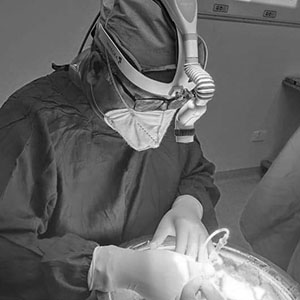One of the most important complications that may occur after receiving a transplant is the rejection. As you were not born with your transplanted kidney, your body will think the new kidney is “foreign” and will try to protect you by “attacking” it. So you must take your anti-rejection medicine exactly as prescribed to prevent rejection.
Are there different types of rejections?
There are two common types of rejections
- Acute Rejection: Usually happens anytime during the first year after transplant and can usually be treated successfully.
- Chronic Rejection: Usually happens slowly over a long period of time. Treatment is often not successful. Your Treating physician will be updating medicines time to time.
What are anti-rejection medications?
Anti–rejection (immunosuppressant) medications decrease the body’s natural immune response to anything that is “foreign” i.e. do not belong to your body (in this case, transplanted kidney). They lower (suppress) your immune system and prevent your body from rejecting your new kidney.
Why do I need to take anti-rejection medication?
You should never stop taking your anti-rejection medication no matter how good you feel and even if you think your transplanted kidney is working well. Missing or stopping the medication will cause a rejection to occur. Kidney rejection do not have clinical signs or symptoms in early stages so it is difficult to diagnose. Rejection is often not reversible once it starts and results in the loss of the transplanted kidney.
How should I take anti-rejection medication?
Here are some tips to help you take your anti-rejection (immunosuppressant) medication as directed
- Taking regular and timely medicines should be your daily routine.
- Take help of alarms and alerts to remind you when to take your medication. It is easy to forget your medication, especially once you are feeling well, so be creative to find ways to remember it. You should know all of your medications by name and dose. Know the reason for taking each medication. Click here for form.
- Ask for and review all written instructions for any change in medication dose or frequency.
- Tell your transplant team of problems and concerns about medications during every clinic visit.
- If a doctor other than a member or your transplant team gives you a prescription, notify the transplant team before taking. Some of the medications can interfere with your anti-rejection medications and keep them from working.
- Continue to take your anti-rejection medication no matter how great you feel, even if you think your transplanted kidney is working well as stopping them will cause kidney rejection.
Do anti-rejection medications have side-effects?
These have a few side-effects which are usually manageable for most patients. Blood levels of these medications will be checked regularly to prevent rejection and side-effects. In case of occurrence of side-effects, your doctor may change the dose or type of medications.
What are the side-effects of anti-rejection medications?
Some of the most common side-effects of anti-rejection (immunosuppressant) medications include high blood pressure, an increased chance of having infections, gastrointestinal (belly/digestive) side effects, and increased risk of some forms of cancer.
What are the types of anti-rejection medications?
There are 3 groups of anti-rejection (immunosuppressant) medications:
- Induction agent: Powerful anti-rejection medication used before the transplant in the operating room and immediately after the transplant surgery.
- Maintenance agents: Anti-rejection medications you will take daily for as long as you have your transplanted kidney.
- Rejection agents: Medications which are used for the treatment of rejection episodes.
Get An Expert Consultation
* Kidney Transplant
* Robotic Kidney Transplant
* SWAP Kidney Transplant
* ABO Incompatible Transplant
* AV Fistula
* CAPD Cather Insertion
drvarunmittal@yahoo.com
